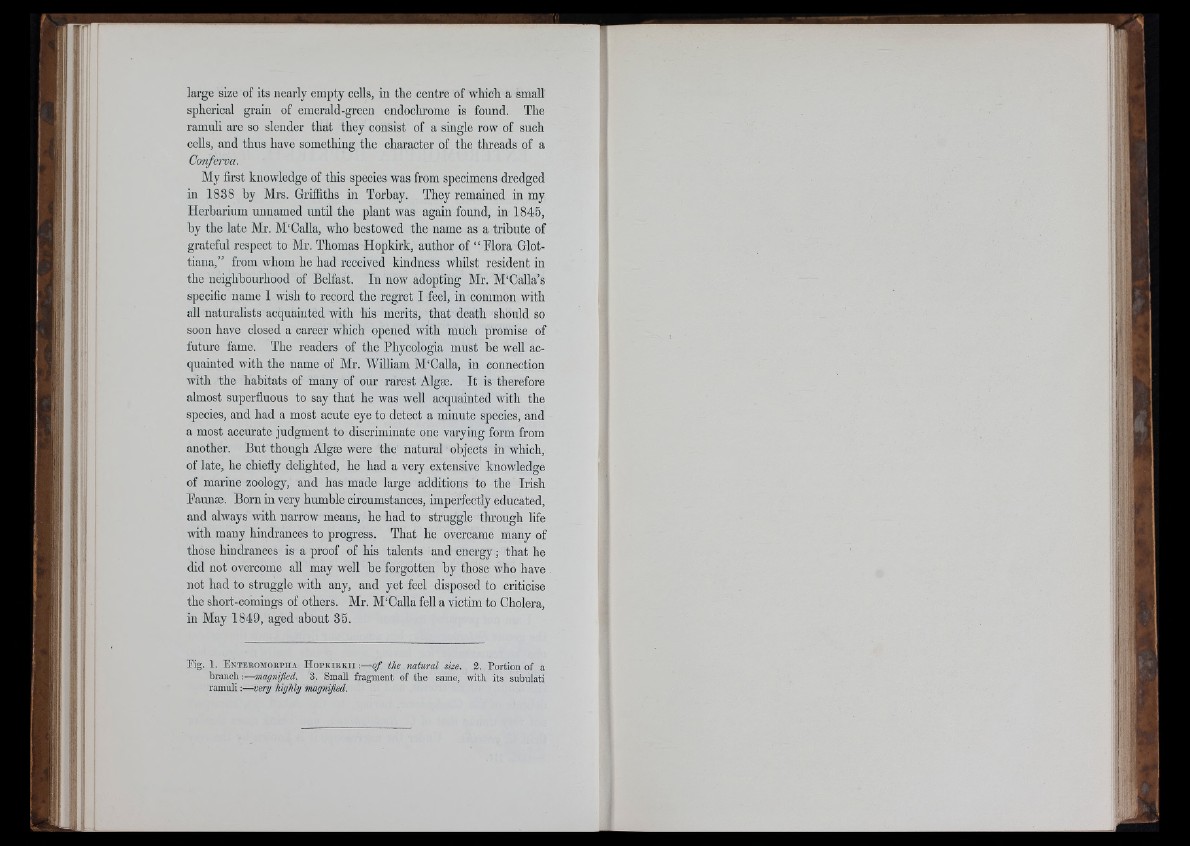
large size of its nearly empty cells, in the centre of which a small
spherical grain of emerald-green endochrome is found. The
ramuli are so slender that they consist of a single row of such
cells, and thus have something the character of the threads of a
Conferva.
My first knowledge of this species was from specimens dredged
in 183S by Mrs. Griffiths in Torbay. They remained in my
Herbarium unnamed until the plant was again found, in 1845,
by the late Mr. M'Calla, who bestowed the name as a tribute of
grateful respect to Mr. Thomas Hopkirk, author of “ Plora Glot-
tiana,” from whom he had received kindness whilst resident in
the neighbourhood of Belfast. lu now adopting Mr. M'Calla’s
specific name I wish to record the regret I feel, in common with
all naturalists acquainted with his merits, that death should so
soon have closed a career which opened with much promise of
future fame. The readers of the Phycologia must be well acquainted
with the name of Mr. William M'Calla, in connection
with the habitats of many of our rarest Algm. It is therefore
almost superfluous to say that he was well acquainted with the
species, and had a most acute eye to detect a minute species, and
a most accurate judgment to discriminate one varying form from
another. But though Algse were the natural objects in which,
of late, he chiefly delighted, he had a very extensive knowledge
of marine zoology, and has made large additions to the Irish
Paunse. Born in very humble circumstances, imperfectly educated,
and always with narrow means, he had to struggle through life
with many hindrances to progress. That he overcame many of
those hindrances is a proof of his talents and energy; that he
did not overcome all may well be forgotten by those who have .
not had to struggle with any, and yet feel disposed to criticise
the short-comings of others. Mr. M'Calla fell a victim to Cholera,
in May 1849, aged about 35.
Kg. 1 . E n t e e o m o e p h a H o p k ik k i i o / the natural size. 3 . Portion of a
hriuAi-.— magnified. 3 . Small fragment of the same, with its subulati
ramuli:— very Uglily magnijkd.